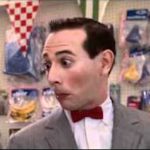Let me open by citing the obvious – the random, revengeful killings of police officers are despicable acts of cowardice and bigotry. Bigotry? Yes – bigotry. Presuming that a member of a collective is equally culpable for the acts of any other is a bigoted worldview. Individuals are responsible for their own actions – not the actions of others who happen to be a member of their collective. All white people are not responsible for slavery, all Muslims are not responsible for 9-11, and all police are not responsible for every unnecessary shooting death.
In 2015 one-hundred twenty-four police lost their lives. Nearly half of those were related to some kind of traffic incident. Meanwhile police killed 1,208 people in 2015. Some were unavoidable. But the majority of these deaths were unnecessary. Many involved innocent people in the wrong place at the wrong time. Others involved minor incidents that quickly escalated because of poor choices. The dictum that “officer safety” is paramount should concern any of us who might absentmindedly reach for our wallet when pulled over without loudly announcing our intentions. The question before us is how do we reduce civilian deaths while not putting officers in a position where they fear for their lives with every interaction. The answer is to stop asking them to do three things at once.
Traffic enforcement duties should be spun off as a completely new line of work wholly unrelated to traditional “policing.” Imagine for a second that roads were privately owned by Road Corp. Road Corp. wants a safe environment for its customers (as does any business). Road Corp. would hire traffic enforcers to maintain safety. No one would expect these enforcers to also search them for drugs or check their immigration status or telegraph their identity to government authorities. Mall cops don’t do that, so why should traffic cops? So returning from out thought experiment it should be obvious that traffic cops could be unarmed since even actual criminals would have nothing to fear from being pulled over. This alone would eliminate every instance of “thought he was reaching for a gun” death. If someone ignored the blue lights then simply photograph the car’s tag and send the owner a ticket in the mail; there is actually little reason to have a human in a car do the job of a camera on the side of the road.
The second task we ask of the police, and the one resulting in most unnecessary deaths on both sides, is enforcement of the drug war. The drug war casts everyone as a potential criminal since mere possession of an object is a crime. The police are then pushed into the role of assuming everyone is a “bad guy” until proven innocent. They are given unlimited means in this war to cast a wide net. This is a recipe for disaster. Wide nets tend to catch a lot of the wrong thing. Some are set free, but many die while caught in the net. Ending the drug war, for all drugs, would do far more toward reducing police and civilian deaths than any other reforms on the table.
The third job is the one police should actually be doing, namely, serving and protecting (or so the logo goes): recovering stolen property, tracking down the bad guy, bringing murderers to justice, and so on. Police would be more effective at this job if they were not required to dilute their resources with traffic and drug war duties. We don’t ask firemen to randomly search homes for fire hazards, stop and frisk people for lighters, sparklers, or copies of “Fahrenheit 451” and then to also put out fires, so we shouldn’t ask police to do a myriad of other tasks unrelated to actual policing against actual crimes.
